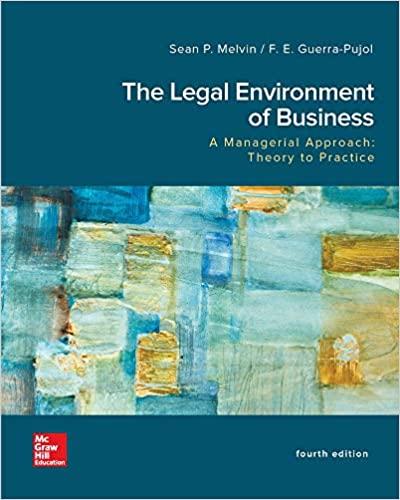Bradley was an African American man who worked as a delivery man for Pizzaco, doing business as
Question:
Bradley was an African American man who worked as a delivery man for Pizzaco, doing business as Domino’s. He was fired for noncompliance with Domino’s no-beard policy. The no-beard policy was established nationwide by Pizzaco’s franchisor, Domino’s Pizza, Inc. Bradley alleged that he suffered from psuedofolliculitis barbae (PFB), a skin condition affecting approximately 50 percent of African American males and causing half of those affected to be unable to shave at all. Bradley claimed that the no beard policy deprived him and other African American males suffering from PFB of equal employment opportunities in violation of Title VII. Domino’s defended the policy, saying that it was common sense that the better its people looked, the better its sales would be. Domino’s also stated that any exceptions would make the policy too difficult to enforce. A survey was introduced showing that 20 percent of those surveyed would react negatively to a delivery man with a beard. The EEOC contended that Domino’s failed to show business justification for its inflexible no-beard policy, and the commission sought injunctive relief to enjoin Domino’s ongoing policy. (Bradley was shown to have only a mild case of PFB and could have been cleanshaven, so he was found not to be entitled to relief and was not part of this suit.)
CASE QUESTIONS
1. Is customer preference a persuasive argument for this policy? Why or why not?
2. Is this a disparate treatment or disparate impact case?
3. What would Domino’s have to prove to successfully support a business necessity claim?
4. How could a manager allow an exception for an employee claiming PFB yet maintain the no-beard policy for other employees?
Step by Step Answer:

The Legal Environment Of Business A Managerial Approach Theory To Practice
ISBN: 9781260247800
4th Edition
Authors: Sean Melvin, Enrique Guerra-Pujol





